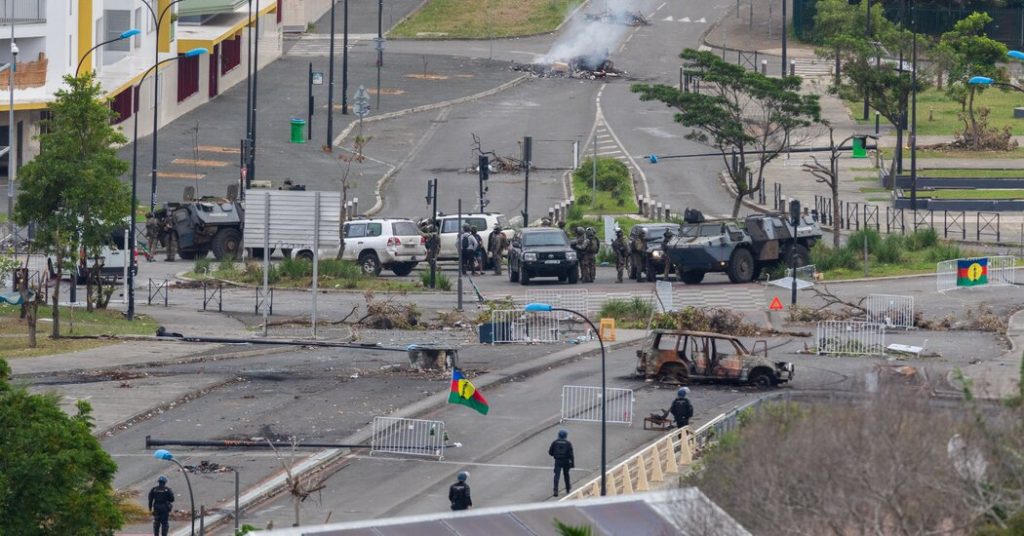President Emmanuel Macron of France is currently facing a multitude of challenges, including the upcoming European elections where his party is expected to lose, preparations for the Olympic Games in Paris, and a manhunt for a convict who escaped from jail. Despite this, Macron made an unexpected trip to New Caledonia, a French territory in the Pacific, to address riots that erupted in response to a vote in the National Assembly in Paris to expand voting rights in the territory. Many in the Indigenous population fear that the law would hinder the progress towards independence, placing Macron at the center of the unrest.
The recent riots in New Caledonia resulted in significant violence and damage, prompting the French authorities to declare a state of emergency and send in hundreds of police officers to restore peace. Macron’s visit to the territory was seen as overdue, as tensions had been simmering since 2021 when he insisted on holding a referendum on independence despite calls to delay the vote due to the pandemic. The Kanak leaders boycotted the vote and have since rejected the results, leading to ongoing unrest and dissatisfaction with Macron’s handling of the situation.
New Caledonia has a complex history, with the French settling the territory in 1853 as a penal colony to convert indigenous populations into a minority. After years of tensions and violence, peace agreements were signed that granted more political power to the Kanak community and recognized their culture and customs. However, the recent vote in Parliament to expand voting rights has reignited tensions, with pro-independence forces viewing it as a threat to their status in the territory.
Macron’s visit to New Caledonia was met with skepticism by some, who viewed it as a superficial attempt to address the crisis. Many independence activists have refused to meet with French officials, citing a lack of neutrality on Macron’s part. Without a commitment to address the concerns of the Kanak community, it is unlikely that the situation will be resolved through dialogue alone. The ongoing unrest in New Caledonia represents a significant challenge to Macron’s leadership and his handling of decolonization issues in French territories.
The trip to New Caledonia highlighted Macron’s approach to conflict resolution through personal dialogue, but many believe that deeper political commitments are needed to address the root causes of the unrest. The French government’s push to expand voting rights in the territory has exacerbated existing tensions and threatens to destabilize the delicate balance in New Caledonia. Without a willingness to listen to the concerns of the Indigenous population and make meaningful changes, Macron risks further alienating the Kanak community and fueling more unrest in the region.
Overall, Macron’s visit to New Caledonia underscores the challenges of governing overseas territories with complex histories and ongoing struggles for independence. The riots in New Caledonia have brought long-standing issues to the forefront, and Macron must navigate a delicate political situation to prevent further escalation of violence. As tensions continue to simmer in the territory, Macron’s leadership and ability to engage with all stakeholders will be crucial in finding a sustainable solution to the conflict in New Caledonia.


